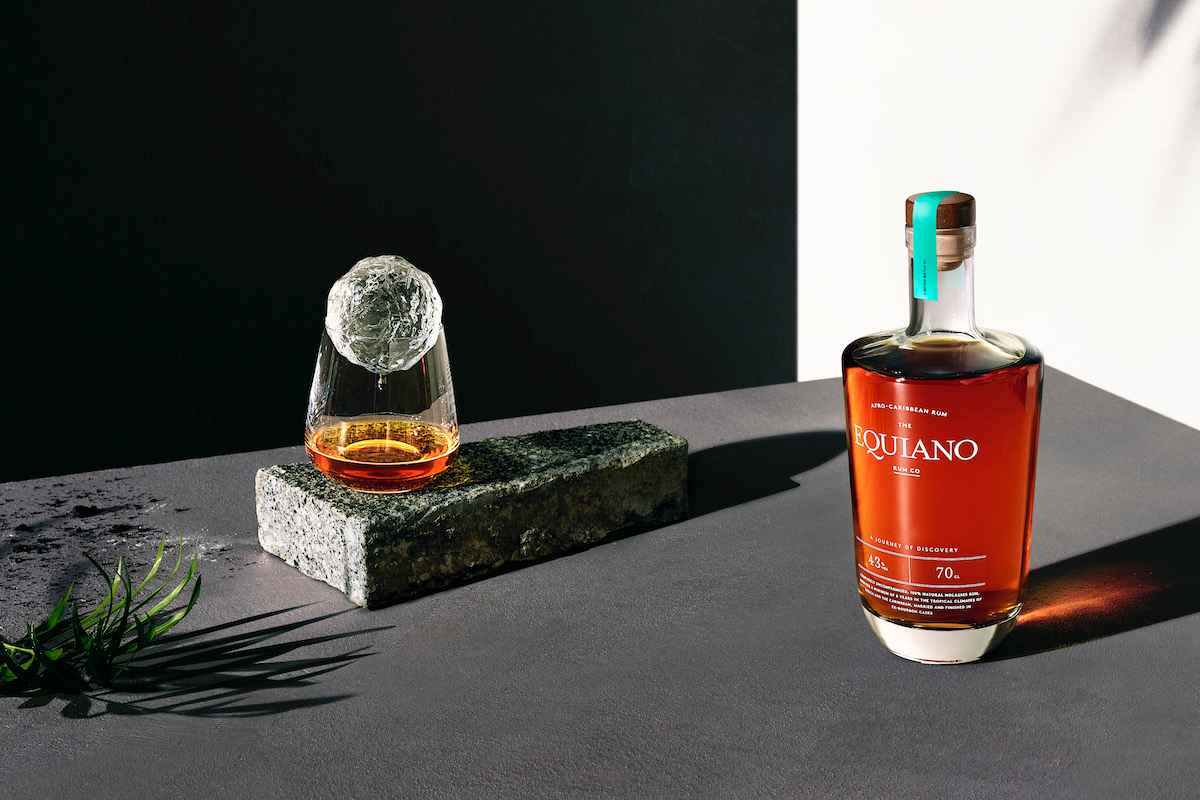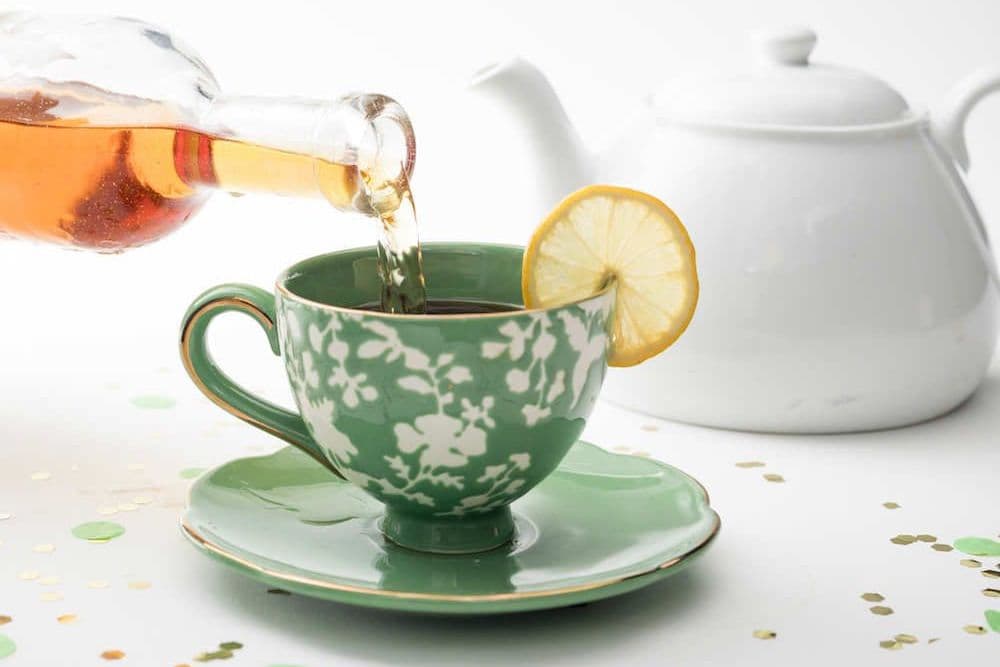Sometime in the middle of the 18th century, Olaudah Equiano was kidnapped, sold into slavery, and transported from Africa to Barbados to begin a lifetime spent as another man’s property. Remarkably, Equiano bucked fate by selling puncheons of rum while enslaved, and after accruing 40 pounds, he bought his own freedom.
Equiano went on to pen an autobiography, “The Interesting Narrative of the Life of Olaudah Equiano,” which became a best-seller and is credited with driving the passage of The Slave Trade Act of 1807, which abolished slavery in the British Empire.
Given his incredible life, and his impact on world history, you’d think Equiano would be a household name rather than a historical obscurity. But the formerly enslaved writer and abolitionist’s story may soon reach new audiences thanks to an unconventional yet fitting medium: a new African-Caribbean rum named in his honor.
A Spotlight on Africa
A few of the biggest names in rum have joined forces to bring Equiano Rum to market. Richard Seale, the Master Distiller of the lauded Foursquare distillery in Barbados, is a co-creator, and its co-founders include Ian Burrell, the UK-based Global Rum Ambassador.
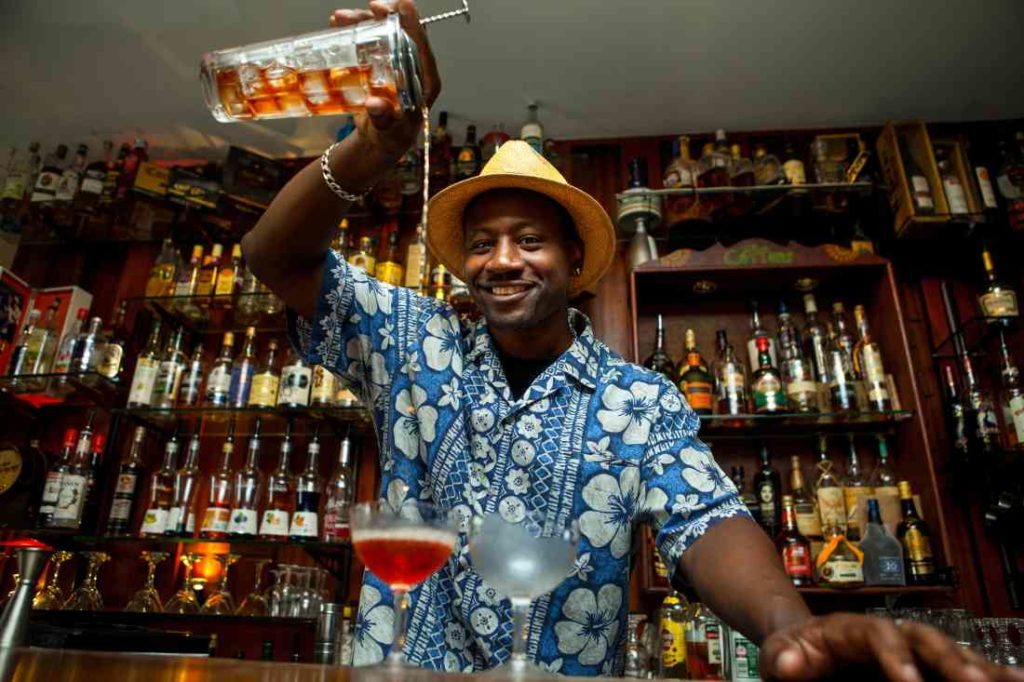
Burrell, a sought-after bartender, educator, and spirits judge who founded The U.K. RumFest and The Miami Rum Congress, decided that if he was going to get involved in a rum brand it had to be high-quality, and it had to be unique. From the very start, he wanted to highlight a rum-making part of the world that flies entirely under the radar: Africa.
“A lot of sugar cane spirits that are made in Africa are made for local markets, and not made for export in the Caribbean, which is the epicenter of the rum world. You have 400 years of colonial infrastructure to actually make and create brands that you could sell around the world,” Burrell says.
Yet a singular focus on the Caribbean doesn’t tell the whole story. “The Caribbean is seen as the epicenter, but the history and the heritage of the Caribbean is in Africa,” says Burrell.
Eventually, Burrell and the team decided that it would be an African-Caribbean rum, the world’s first, blended from rums selected from each region. Once Foursquare was brought on board as the Caribbean element, the team noticed the similarity between the journey of their rum and the life of Olaudah Equiano.
“He started off in Africa, and went to Barbados, the U.S., and the U.K., which is exactly the same journey that our rum has made. Everything just fit into place,” Burrell says.
From Mauritius to Barbados
The African portion of the rum comes from Mauritius, an island nation in the Indian Ocean just to the east of Madagascar, which was colonized by the Dutch, the French, and the English. As a result, the island’s rum industry is a fascinating hybrid that borrows from French and English distillation methods.
Producers in Mauritius distill rum from both fresh sugar cane juice, as most French ex-colonies do, and molasses, which is more common to former English or Spanish colonies. Equipment-wise, Burrell compares Mauritian distillers to those found on Barbados, St. Lucia, or Antigua, as they rely on column stills to produce a lighter yet medium-bodied style of rum. A lasting French influence is found in the use of ex-cognac French oak barrels for aging, which imparts more spice character to the rum.
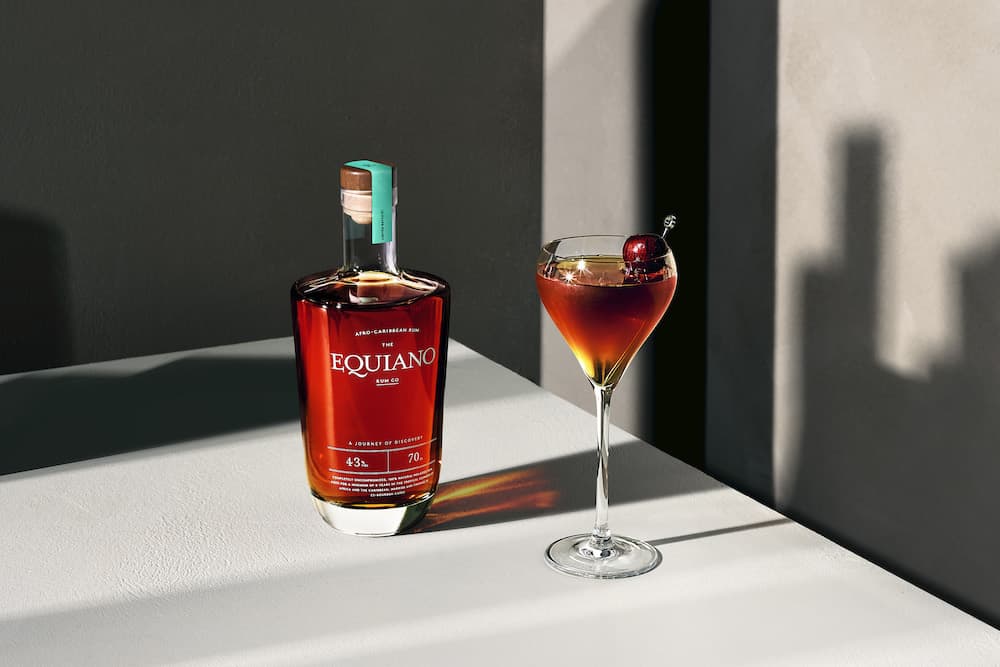
The particular Mauritian Distiller that Equiano has partnered with, Grays, distills from a base of local molasses and ages the rum for at least 10 years in a combination of French Limousin oak and ex-cognac casks. Afterward the rum is sent to the Foursquare Distillery in Barbados, where it is married and vatted with Foursquare rum aged in ex-bourbon American oak casks prior to bottling.
However, what doesn’t go into the rum is just as notable.
“One of the most important things for us is the addition of nothing,” Burrell says. “There are some brands out there who like to try to sweeten their products … Richard Seale and Foursquare are 100% against that. Rum should be as natural as possible. All of the flavors, the natural spices, should be coming from the integration of liquid, wood, and the tropical aging.”
Future Equiano Rum Expressions
While the Equiano team has created a first in the form of their African-Caribbean rum, Burrell sees their business model as a throwback to rum history.
“Equiano is a company of rum blenders, just like the old tradition of making rums. If you didn’t have the money to own your own distillery you would go to the best, create your blend, your recipe, and then sell that in the United States, sell that in Europe, and that’s what we are. We are a rum company,” he says.
Burrell—who cites that Equiano currently has access to 40,000 barrels of rum at Foursquare and 30,000 at Grays—plans to release more rums under the label in collaboration with both makers. Presently, a lighter expression intended for use in cocktails is in development. The ratio of its Barbadian and Mauritian components will be different, and it will contain rums distilled from both molasses and sugar cane juice. Burrell hopes that this new Equiano expression may be launched in the second quarter of 2021, with the caveat that our strange present makes it tough to predict anything.
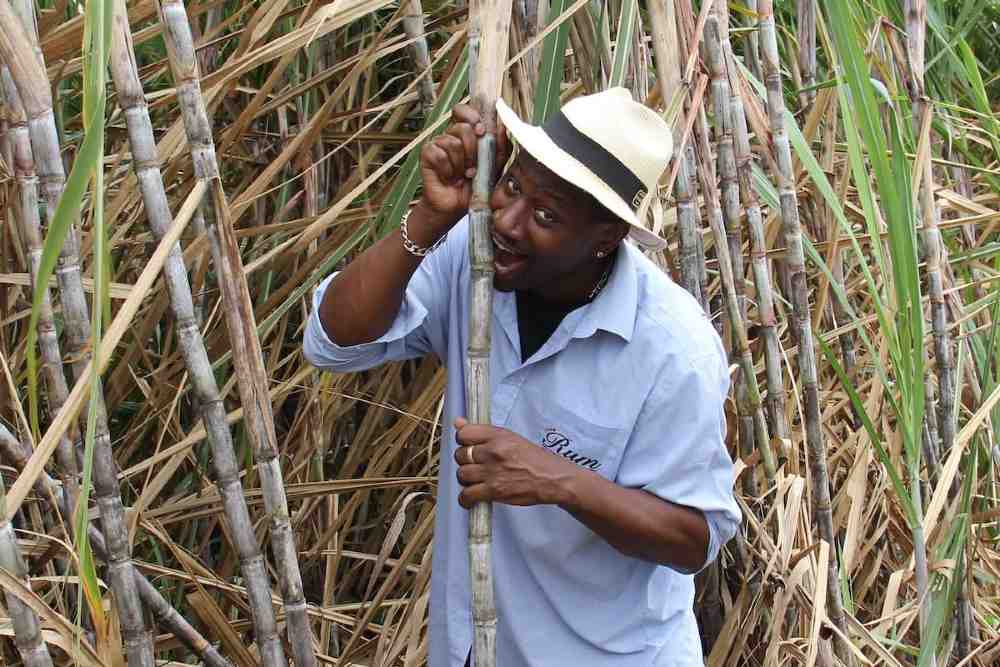
In addition, he hopes that the Equiano label can eventually release limited editions, and may potentially source rums from other African nations, with Foursquare remaining its consistent partner in the Caribbean.
Giving Back
Aside from the rum, the partners have also created The Equiano Foundation, which will be funded with 5% of company profits as well as £2 (or $2) of every bottle purchased directly through the company’s website. The foundation, which according to Equiano’s website, will “fund and support ground level freedom and equality projects annually,” was conceived before the rum’s namesake was selected.
“We all completely agreed that if we were taking a natural resource from somewhere, we should give something back to the place we were taking the natural resource from. Before we had the name Equiano, we all agreed that there would be this mechanism that gives back,” says Aaisha Dadral, an Equiano co-founder who also serves as the label’s brand and marketing director.
Each year, the Equiano Foundation will support a different organization that meets those ideals. For their first year they intend to work with an African organization and will finalize their choice this year. In addition to these financial contributions, Dadral sees spreading awareness of Olaudah Equiano as part of the brand’s mission.
“We were all astounded, certainly in the U.K., that [Olaudah Equiano’s story] is no longer on our education syllabus and generally people don’t know this,” she says. “One of the byproducts of the work we intend to do is democratize the telling of the Equiano story, but more importantly, to really do some more work on his values.”
Spirits are often more associated with the act of forgetting, rather than remembering, but Equiano may prove the exception to that rule.
“For us, it’s all about the journey of discovery,” Burrell says. “When people find out about Equiano, they feel pleasantly fulfilled to learn about someone who fought against everything he wasn’t supposed to and succeeded by grit and determination. All of the entrepreneurial qualities that we expect from someone today that wants to succeed in life … that’s exactly what he showed us in the 18th century.”
